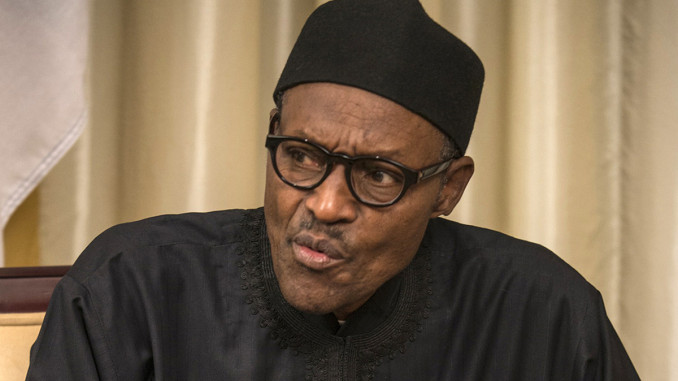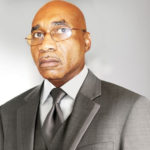

Less than two years after he took office, President Buhari and his selection of incompatible cohorts have run Nigeria’s social system into anarchy; cluttered the country’s political structure; and ran the economy into a near irreparable recession. But recession may not be astonishing because organizational challenges come and go. The danger is that this president may not even know that his country’s economy is in recession, while he ignorantly flip-flops from one social campaign to the other.
In a mist of economic catastrophe, President Buhari’s first disastrous move was to launch a movement against societal indiscipline. The aged authoritarian had declared a war on “indiscipline” last month, recreating a “task force” that would supposedly ensure orderly queues, clean streets, and enforce punctuality across the public service system.
This was a reintroduction of one of his punitive programs in his days as dictator. Shortly after he seized office in 1983, General Buhari, as he then was, set up the “War Against Indiscipline,” (WAI); using hardened military bullies to terrorize citizens with brutal penalties and humiliations. For instance, civil servants who turned up late for work were publicly and physically abused, while Nigerians accused of dropping litter and jumping queues faced penalties ranging from compulsory press-ups to fines.
As President Buhari was busy rehearsing his campaign against Indiscipline, Nigerian Bureau of Statistics (NBS) hinted that the country has dropped into recession. The country’s gross domestic product (GDP) dropped by 2.06 percent in the second quarter of 2016 after falling 0.36 percent in the previous three months. To make it worse, Nigeria’s oil industry went down against weaker global prices.
Unperturbed by the impending fiscal hardship, President Buhari resumed another campaign – this time , a movement tied to a transformation process he adopted as a campaign promise late 2014. The new campaign tagged ‘Change Begins with Me’ is expected to engrain accountability, integrity, and positive attitude among the populace to comprehensively attain national development.
This President charged his frustrated citizens to be part of his campaign because the change they would see begins with them. According to President Buhari, “If you have not seen the change in you, you cannot see it in others or even the larger society. In other words, before you ask ‘where is the change they promised us?, you must first ask, ‘How far have I changed my ways? What have I done to be part of the change for the greater good of society’?”
President Buhari, just like most African dictators, had adopted a call for patriotism and action by a former United States President John F. Kennedy, in his inaugural speech in 1961 that Americans should ask not what their country could do for them, but ask what they could do for their country. Failed leaders, especially in Africa, had relied on this phrase to intimidate their citizens into love and service to their country even when these leaders leave them without the least basic necessities. But President Kennedy was only energizing his populace by expressing the significance of patriotism and unyielding support for public service. He wasn’t preaching on how to support indolent leaders who terrorize their people.
Recessions is harmful for any country and any responsible leader in this condition should organize relevant resources to seek the way out. The most relevant entity or player to stop recession or divert the economy to the path of growth is the government. Unfortunately, President Buhari, so detached with both his subordinates and constituents is yet to present a blueprint to address his economic woes. With an inexistent economic team, this president has totally ignored any prime actions on alleviating his current predicament; rather he had trotted from one social campaign to the other, professing policies that bear no relevance to his regime’s immediate needs.
But this latest campaign, ‘Change Begins with Me’ reveals about this regime, a total lack of comprehension of the change development. Change is a fundamental application of the transformation process, and neither begins with the leader nor the lead; rather, it is a revolution from a current state to a proposed future state to inspire relevant development. In a change environment, the leaders take charge in managing the development and surmounting barriers of the process. Thus, an estimated change can only be effective when leaders understand the development mechanism, significant complications, and other barriers that must be mitigated.
President Buhari had complained about some elements that break pipelines and other oil facilities, thus robbing the nation of the much-needed resources. But his inability to properly address the issues involving the Niger Delta indigenes contradicts his change campaign and further frustrates the country’s constitutional mission to attain unity. In organizational development or governance, change hardly thrives in a system riddled with economic injustice and sociopolitical uncertainty.
President Buhari’s campaign that a “Change” process must begin from the constituents is a misguided development preference. In the transformation fraternity, both the leader and the led are united in the process and must uplift each other in a greater height of success. In the domain of organizational transformation, the leader takes charge in developing a feasible agenda; he must communicate a clear vision, build trust, and generate necessary understanding among subordinates. But President Buhari cannot facilitate a change process by a current isolation of both his subordinates and the masses from the governmental process.
With Nigeria and its current dysfunctional governance, any proposed change process must be a paradigm shift. A process revolution that would start from president Buhari himself. This president must embrace the mechanics of Organizational Development. He must create a new structure that would radiate fundamental principles that foster collective involvement of significant stakeholders; boost learning; advocate justice and equality; create path to effective communication; mutual obligation, and other factors that would engage people and foster strategic means to collectively solve problems.
♦ Anthony Ogbo, Ph.D. is the Publisher of Houston-based International Guardian, and author of “Governance Buhari’s Way.”

Leave a Reply